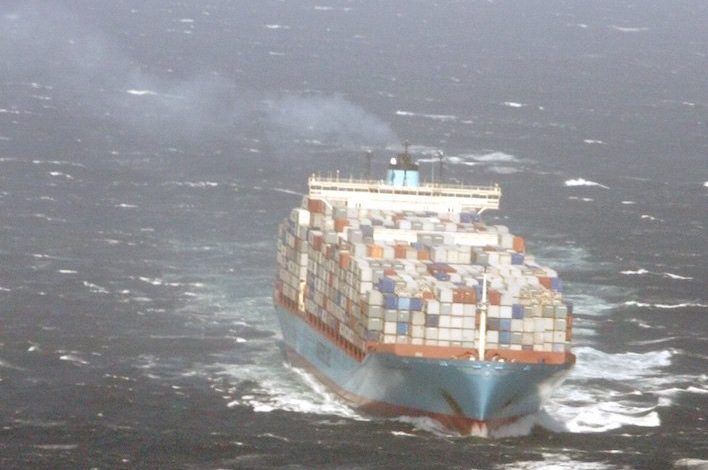World fleet 60% larger than 2008, but emitting 18% less carbon

Despite the global merchant fleet being 60% bigger than in 2008, its carbon footprint has dropped by 18% over the last 11 years, according to data from Clarkson Research Services.
The latest Clarkson weekly report shows that the the fuel consumption and the carbon output of the world fleet is lower today (~820m tonnes of carbon) than in 2008 (~1,000m tonnes), despite moving 35% more cargo and there being 60% more tonnage on the water.
The primary driver has been speed, which is down 15-20% according to Sea/net. In addition, a new generation of fuel efficient vessels has helped, the report noted. Clarkson Research Services now grades around 30% of the world tonnage as “eco” and estimates these vessels produce around 20% less carbon. For example, based on the same voyage assumptions Clarkson Research Services uses for its earnings calculations, a modern ‘eco’ capesize produces around 85 tonnes of carbon per day compared to around 112 tonnes for a non-eco.
Under International Maritime Organization (IMO) guidelines, shipping has been tasked with slashing its greenhouse gas emissions by 50% by 2050 compared to 2008 levels.

Thank you and everybody who adds to this environmental improvement and not just pointing fingers and dark-cloud-thinking or ‘feeling’ to have attributed to our climate by being emotionally shocked 😉
Could we have a small calculation for reduced carbon emissions, based on future tonnage related to world trade and replacement of ships by eco-friendly ones based on usual replacement by age for the next 10, 20 years and 2050?
Would be nice to see the accumulated present effects.
Not leaving out to mention that CO2 levels and temperatures have been clearly higher in paleogene periods with expected overwhelming ‘green’ life and wildlife (methane 😉 ) against today’s levels. Actually, bringing back CO2 from sediments into the air would benefit ‘green’ life again (absolute minimum is 150 ppm, below this plants would not be able to produce oxygen through photosythesis) . But we do not want to forget and exclude the polluting effect and that what we save can be used for later. Any alternative is of course welcomed.
Fuel efficiency sure, but also less vessels… Just because you are moving more tonnage does not mean you have the same or more never of actual vessels.
How many more ships, because surely we have not increased the number of ships by anywhere near 60%
Please check the increase in the Global fleet. It hasn’t increased 60% in 11 years?